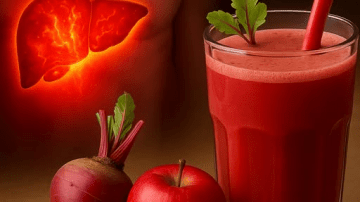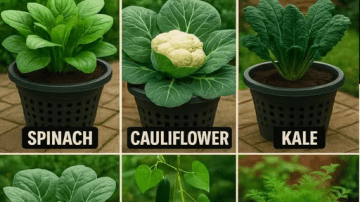You know that feeling after a heavy meal—your stomach feels tight, your energy crashes, and all you want is relief. Imagine a warm, fragrant cup that not only soothes your belly but quietly supports your body’s balance from the inside out. Sounds too simple, doesn’t it? Yet, tucked away in tropical gardens across Asia and South America lies a gentle duo that may hold the secret: guava leaf and lemongrass.
At first sip, it’s just tea. But stay with me, because what happens beneath the surface might surprise you.
When Your Body Sends Subtle Signals
For many adults, especially after 45, small signs start showing up. Occasional bloating, sluggish mornings, unpredictable sugar levels, or that foggy feeling that creeps in mid-afternoon. Most people shrug it off—“just aging,” they say.
But what if your body is whispering instead of shouting? What if these signals are small cries for balance—from your gut, your liver, or your blood sugar system?
Here’s the twist: you don’t always need drastic cleanses or expensive supplements. Sometimes, nature hides its most effective tools in the simplest forms—like the leaves and stalks of two humble plants.
The Story That Started With a Cup
When Martha, 56, first heard about guava leaf tea, she was skeptical. “I’ve tried everything,” she laughed. “Green juices, detox kits—you name it.” But one afternoon, visiting her sister in Florida, she was handed a steaming cup of golden tea made from fresh lemongrass and dried guava leaves.
“It smelled like the garden after rain,” she recalled. “Citrusy, earthy, and calming.”
Within a week of sipping it daily, she noticed something subtle: less bloating after dinner, steadier mornings, and an unexpected feeling of lightness. Was it magic? Probably not. But it might have been balance.
Why Guava Leaf Deserves a Closer Look
Guava leaves have been used for centuries in traditional medicine—not as a miracle, but as a gentle ally.
Scientific studies suggest they may help support healthy blood sugar levels by slowing carbohydrate absorption and improving insulin sensitivity. That means fewer sudden spikes and crashes—the quiet rollercoaster that often drains energy.

Even more interesting, guava leaf compounds like quercetin and flavonoids may tighten the intestinal wall, helping the gut stay strong and less permeable. You’ve probably heard of “leaky gut”—that’s when your intestinal barrier weakens. Guava leaf might act like a quiet repair crew, working while you rest.
But wait, it doesn’t stop there. Early research hints that guava leaf tea may also support digestion and help balance the gut microbiome, that vast internal world that influences everything from mood to immunity.
Still wondering how lemongrass fits into the story? Let’s find out.
Lemongrass: The Bright Healer with a Citrus Heart
Close your eyes and imagine slicing fresh lemongrass. The air fills with a lemony fragrance so clean it almost feels like it’s scrubbing your mind. That’s not imagination—lemongrass contains citral, a compound known for its refreshing and cleansing aroma.
But inside your body, it may do more. Studies show lemongrass tea can help relieve bloating, calm digestion, and even support liver detoxification. The liver, your body’s natural filter, sometimes needs gentle allies—not harsh cleanses—to stay efficient.
Samantha, 48, a yoga instructor, shared that her nightly ritual of lemongrass-guava tea became her “unwind moment.” “It’s not just tea,” she said, “it’s permission to pause.”
That pause may be part of the healing. Because when the body relaxes, it digests, detoxes, and repairs more effectively.
Brewing Balance: Why Together Is Better
On their own, guava leaf and lemongrass are mild. But when brewed together, something fascinating happens—their properties complement each other like old friends.
Guava leaf provides grounding and intestinal support. Lemongrass adds brightness and detox assistance. The result? A cup that’s both gentle and powerful—soothing yet cleansing, refreshing yet balancing.

But before we dive into how to make it, take a look at what each offers.
Comparison Table: Guava Leaf vs. Lemongrass
| Property | Guava Leaf | Lemongrass |
|---|---|---|
| Key compounds | Quercetin, flavonoids | Citral, limonene |
| Main benefit | Supports blood sugar balance | Relieves bloating |
| Secondary support | Tightens intestinal wall | Helps liver detox |
| Aroma & taste | Earthy, herbal | Citrusy, fresh |
| Energy effect | Calming | Refreshing |
| Ideal time to drink | After meals | Evenings or mid-day |
The 7 Gentle Benefits of This Herbal Duo
7. May Support Blood Sugar Balance
If your energy fluctuates throughout the day, guava leaf tea could help smooth those waves. Compounds in the leaves may reduce sugar absorption after meals—like quietly balancing the rhythm your metabolism dances to.
6. Could Tighten and Protect the Intestinal Wall
Think of your gut as a gatekeeper. Guava leaf’s antioxidants may strengthen that gate, reducing inflammation and supporting smoother digestion.

5. Helps Relieve Bloating and Discomfort
Lemongrass is often used as a carminative—meaning it may help gas pass naturally and ease the tension of a swollen belly. Imagine ending dinner without that tight, overstuffed feeling.
4. Supports Gentle Liver Detox
Your liver works nonstop, filtering and neutralizing substances. Lemongrass tea may help by providing mild detox support—encouraging natural cleansing without the extremes of harsh detox regimens.
3. Soothes the Mind and Lifts the Mood
Few people realize this: scent matters. The aroma of lemongrass can activate the parasympathetic nervous system—the “rest and digest” mode. That’s why this tea feels as calming as it is energizing.
2. Aids in Weight Management Efforts
Early studies suggest guava leaf tea may support metabolism and help maintain balance when paired with a healthy diet. No shortcuts here—just steady support for steady change.
1. Encourages Daily Ritual and Mindful Living
Beyond chemistry and science, there’s something powerful about ritual. Taking five minutes to brew, breathe, and sip creates space for reflection—something we often forget to give ourselves.
How to Brew This Balancing Cup
You’ll need:
- 1 tablespoon dried guava leaves (or 2 fresh leaves)
- 1 stalk lemongrass, sliced
- 2 cups hot water
Steps:
- Add both ingredients to boiling water.
- Lower the heat and simmer for 5–7 minutes.
- Strain and sip slowly while warm.
The flavor? Earthy at first, with a bright citrus finish that feels like sunlight after rain.
Usage and Safety Guide
| Step | Recommendation | Safety Tip |
|---|---|---|
| Frequency | 1–2 cups daily | Not a replacement for prescribed medication |
| Timing | After meals or before bed | May not suit people allergic to guava or citrus |
| Duration | Use regularly for 2–3 weeks, then pause | Consult your healthcare provider if pregnant or diabetic |
| Combination | Pairs well with light evening snacks | Avoid excessive sugar or honey |
“But Does It Really Work?”
You might be thinking, if it’s that simple, why doesn’t everyone drink it? The truth is, most people overlook natural habits because they seem too easy. We’ve been trained to think solutions must be complicated.
Yet, as research into plant-based compounds grows, we’re rediscovering what traditional cultures always knew—nature’s medicine often whispers, not shouts.
So, no, it’s not a miracle cure. But it may be a gentle nudge toward balance—the kind that compounds over time, like the steady warmth of a daily cup.
Your Next Step Toward Everyday Balance
If you’ve been searching for something small yet meaningful to add to your wellness routine, this could be it. Brew a pot tonight. Notice the aroma. The way your breath slows. The quiet comfort it brings.
You may just find that balance doesn’t come from doing more—but from returning to the simple things that nourish you.
Because sometimes, healing begins with a sip.
Disclaimer: This article is for informational purposes only and is not a substitute for professional medical advice. Always consult your healthcare provider for personalized guidance.






